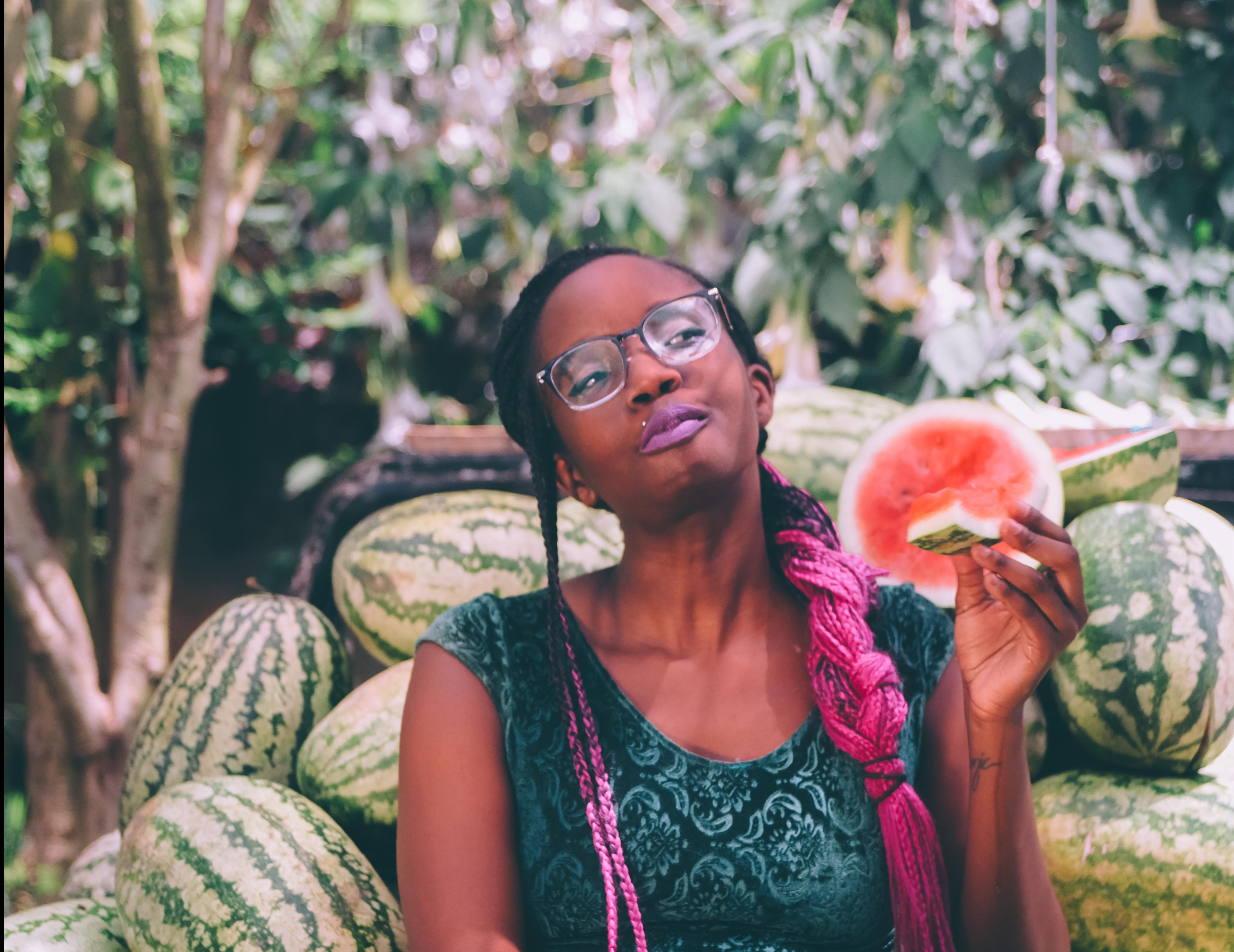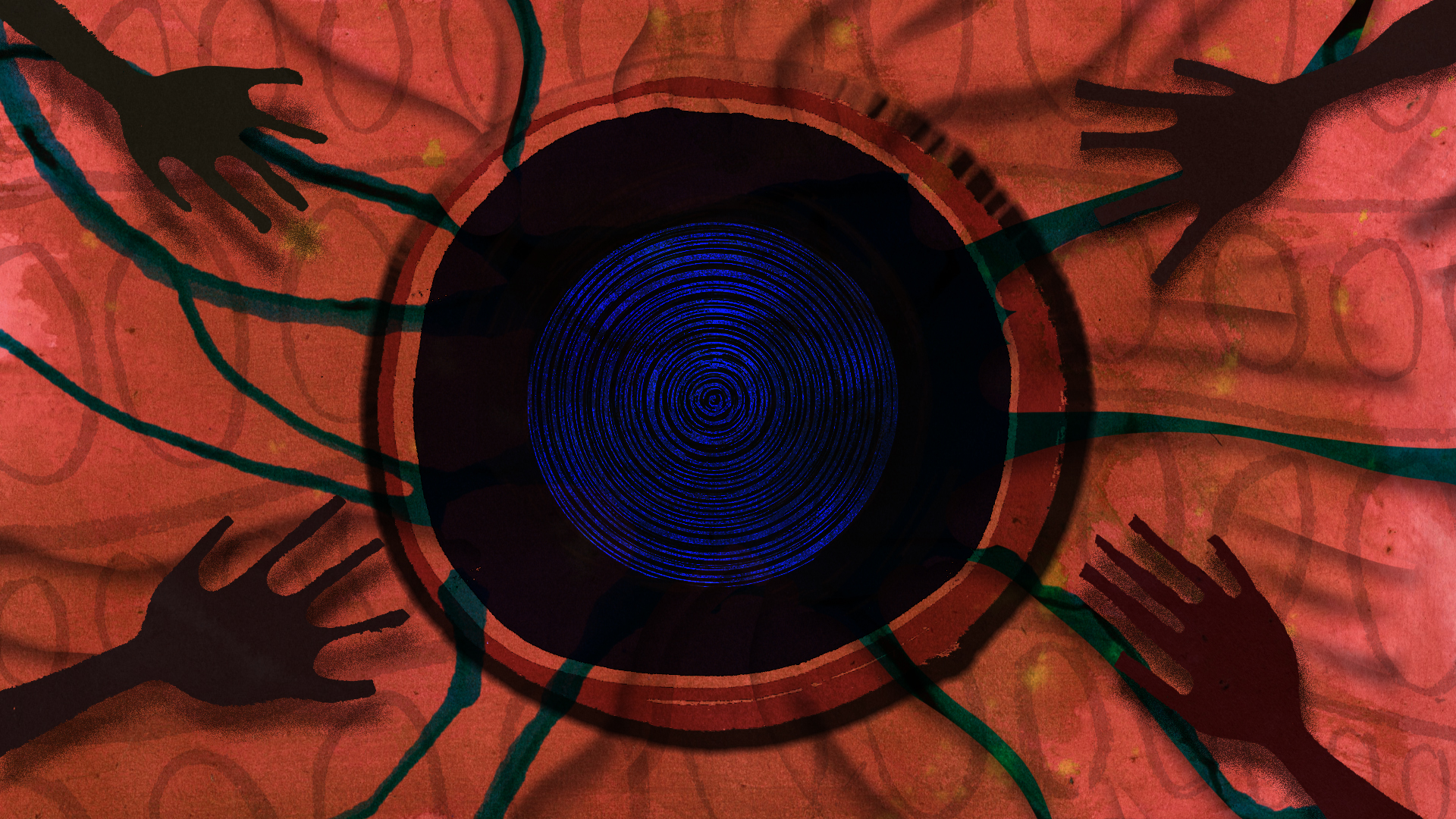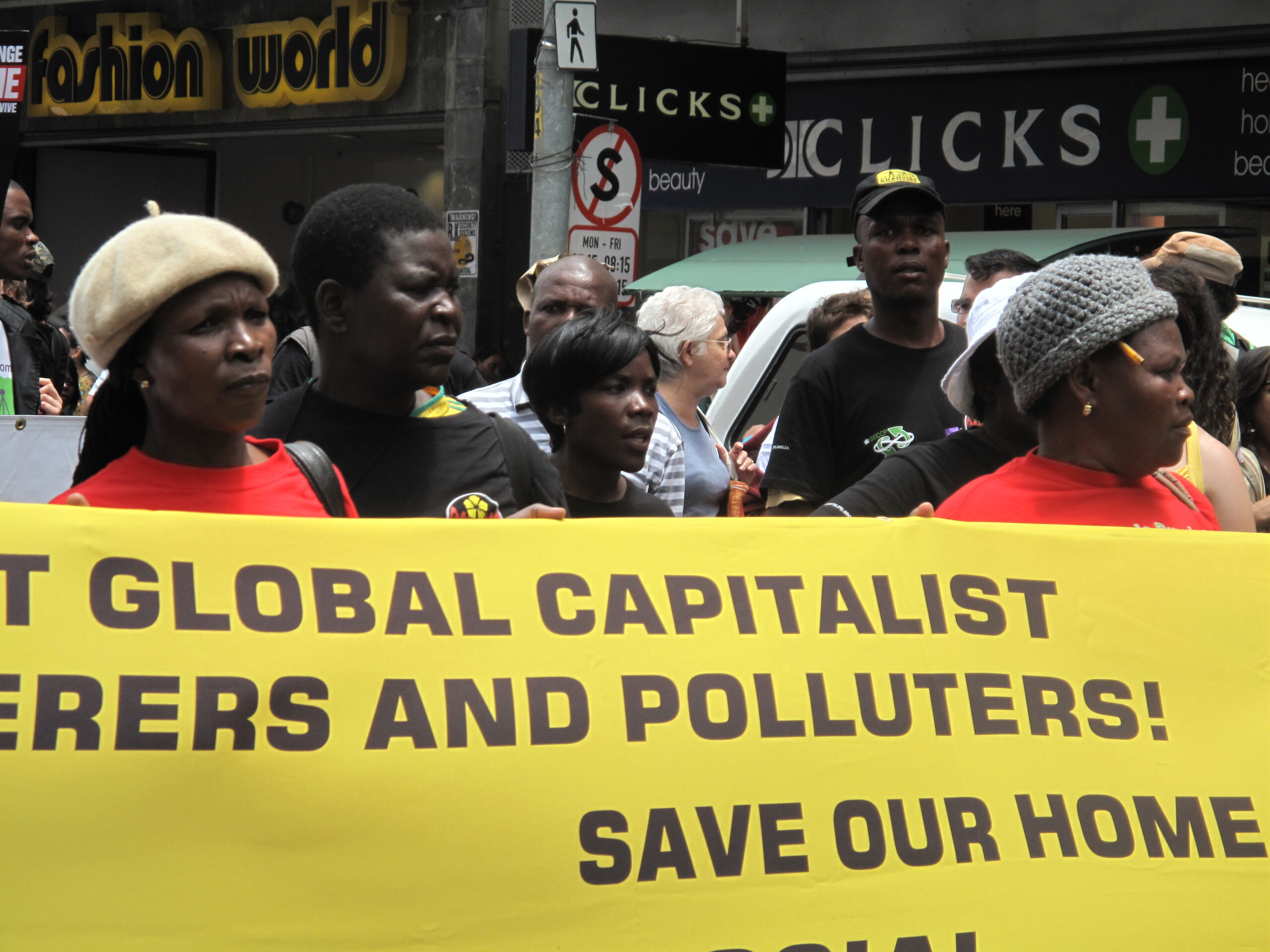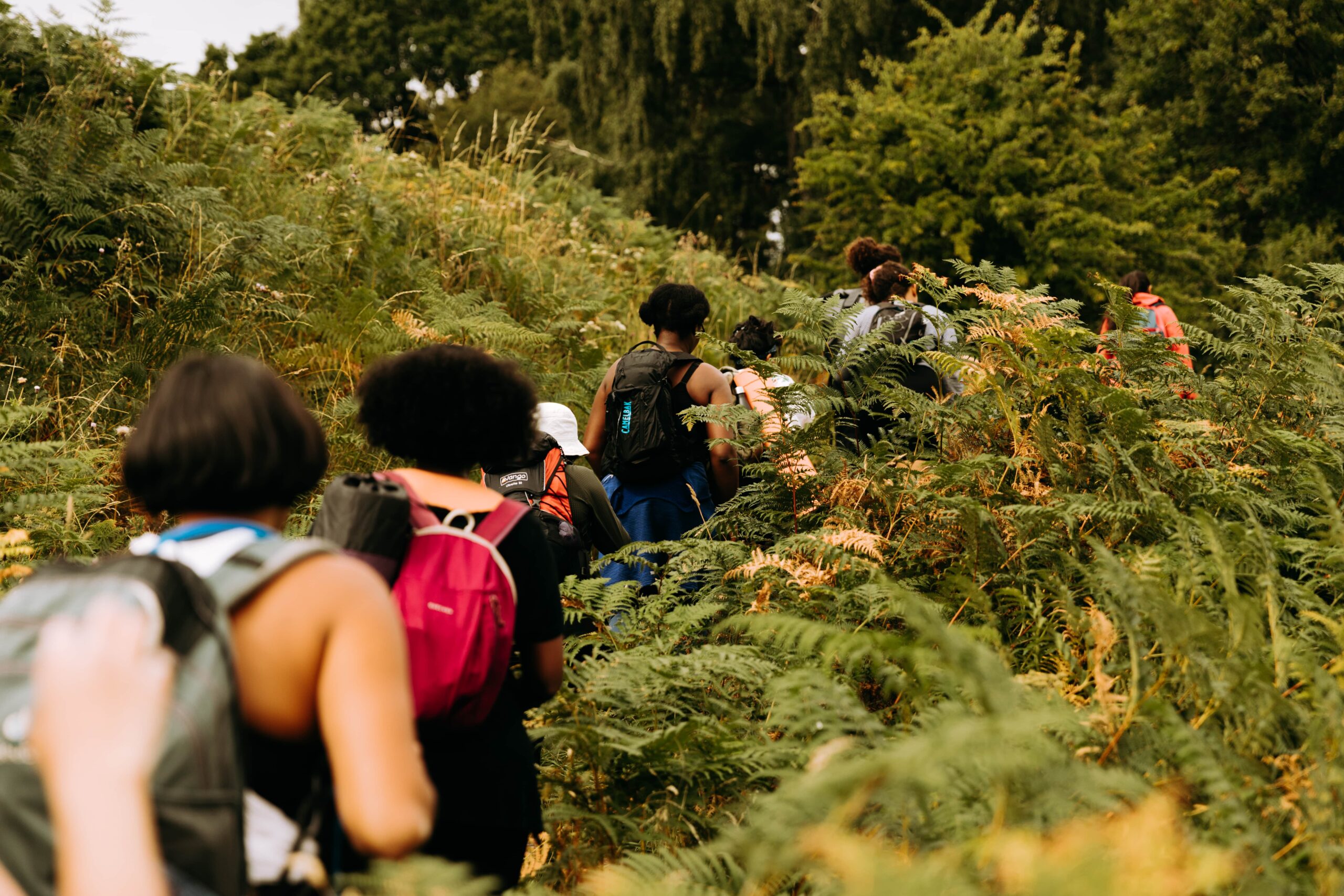
Photography by Darlyne Komukama
Someone has dislocated their knee on the dancefloor. Possibly, this is due to some previous ailment, but I’m choosing to interpret it as the logical bodily reaction to dancing very intensely to the euphoric set that DJ Kampire Bahana is in the midst of.
Raised in Zambia by Ugandan parents, Kampire is an activist and feminist writer (she has written for us before, too), but she’s best known as a DJ, as part of Nyege Nyege – a collective, label and festival that platforms pan-African artists, expanding the concept of what people think African music is or should be. Nyege Nyege has created a space where queer people and femmes can come and dance – although, given Uganda’s laws on homosexuality, promoting this in a way that’s safe can be difficult to say the least.
Kampire’s sets draw sounds from her East-African heritage, but also more generally from across her continent – everything from acholitronix to soukous to kuduro to Congolese rumba, as well as styles we’re more likely to hear in the UK such as afrobeats (she even occasionally nods to Caribbean sounds, by way of soca).
When I meet up with Kampire at New York’s Red Bull Music Festival, she’s thoughtful and enthusiastic as we discuss her life, Nyege Nyege, and – of course – white cratediggers “discovering” artists across the continent.
gal-dem: When you were a kid, what was your dream profession?
Kampire: When I was young, I wanted to be Christiane Amanpour, I wanted to be a journalist. My mum was a history and English teacher so we were always really into books and then I was like, oh okay, maybe I’ll be a writer – but I was never really that person who had a very specific idea of what I wanted to do other than when I was 8 years old [laughs]. So my career just sort of evolved randomly, very randomly. I worked with like women’s NGOs for a bit which was great because I got to travel to rural areas in Uganda and apply some of this feminist theory that I believe in and had been learning about in university in specific and tangible ways. Like, getting more women in government in Uganda. But also I got very frustrated with the NGO model.
In what ways?
Just… Well, personally I think that NGOs are never going to “save Africa” because they are a business model that want to sustain themselves, so they’re never going to solve the problem. Also it’s this idea that Africa, we need help and we need other people to come and save us – with the NGO industry, most of the money goes back to Western countries. So I was getting frustrated with that model and then sort of moved into the arts world and tried to apply my skills there. And then a friend wanted to organise for this festival and was like, do you want to help? And it just sort of spiralled from there [laughs].
And did it just feel logical to play the music that you play?
I mean I’ve always had a very specific music taste and I always wanted to be the person at the party that was controlling the playlist. I always talked about global bass and people like Buraka Som Sistema and M.I.A. who really opened my mind to this kind of… “third world electronic music conversation”, and I was like, “why is this not playing in Kampala?” People would love to dance to it. Also I loved this older African music and wanted that to be part of our musical heritage and… You know, I was not necessarily being super conscious about what I was doing at the time but just these are the songs that I wanted to hear on big speakers basically. When I play, say, like a 90s or 80s Congolese song, which when we were all 10 years old was like the song of the summer, or the song of everyone’s Christmas parties – when I play it on the dancefloor now and see the way that people react! I’m like, oh, I’ve done a good thing [laughs].
“Hopefully the face that I’m sitting here shows that there’s a shift towards wanting Africans to speak for themselves – wanting what we think is important to be part of the global conversation”
There’s been a trend of white dudes going to Africa, “discovering” artists and records. In some ways it can be seen as a good thing – someone like Ata Kak going on tour off the back of being discovered again, or whatever. But there’s also the flip side where there’s some sort of weird colonial hangover about it…
100%, yeah but I think Africans, we’re not yet over this colonial mentality…Valorising things that are discovered by the West or things have to be discovered by the West to be valuable. But you know, we’re not the ones in power here. You can’t blame Africans for that – people are always like, “oh, why don’t you guys value your own stuff? Why do white people have to come and dig up, dust off records?” We’re not the ones in charge. But I think that hopefully the fact that I’m sitting here shows that there’s a shift towards wanting Africans to speak for themselves and for them to be in charge of their own careers and also their taste and point of views and what they think is important to also be considered in the global conversation.
“Our stated intention was just to play some music and throw some crazy parties, but you can’t divorce these things from politics”
In Western music media I feel like there’s been a lack of nuance in how music from across the continent is described even. Everything is Afrobeats, everything’s Afropop or, if someone’s not sure, they just put the word Afro in front of it. How do we move past that?
I think wanting Africans to be the ones describing stuff for themselves and like, to explain the meaning of things and to you know, give value to that aspect rather than having things always be seen and described from the outside. I think that it’s going to take some time, we’re not there yet.
Is the music you play internationally different to what you would play in Kampala?
Yeah, I think in Kampala I’m more trying to play things that would be different – different, but familiar to Kampala audiences. So I want to play a lot of these older African songs that people know but might not necessarily hear in clubs, or to be part of the international global bass conversation because I think that music is fantastically danceable and also related to our own musical heritage in Kampala. But when I’m outside, when I’m on tour, I feel a responsibility to like play East African music or African music for the rest of the world. And to play things that, you know, don’t get played out in New York or London ordinarily. So it’s kind of a little bit of a different mindset.
“Making a safe space that’s open and not coming under notice of the government is a weird game, a weird balance”
How do you go about trying to create a safer space with Nyege Nyege?
We want everybody to have access to this space, and we want sexual minorities to feel safe there. There’s a lot of difficulty in terms of trying to guarantee people’s safety while also being an open space. There has to be different levels at different kinds of events. I’ve been in the middle of some very difficult conversations – some of my friends are like, “I don’t feel safe in this space” or “I feel like they’re using queer bodies as adverts and not guaranteeing people’s safety”. Then I speak to the organisers about how people are feeling and they’re like, “yes but we also want to make sure that 1. it’s open but 2. that we’re not coming under notice of the government by officially being a queer party.” So it’s like a weird game, a weird balance that needs to be met. It’s a day to day thing and it’s a continued conversation. It’s a struggle but I think anything worth having is difficult [laughs].
It sort of has to be innately political?
Even when our stated intention was just to play some music and throw some crazy parties, you can’t divorce these things from politics. And so if you want to create a space where everyone can party freely and every type of person can come without worrying about issues of class and gender and that kind of thing, then you’re going to butt up against some of your society’s ideals.
On the subject of class, I know in India a lot of the underground rave scene is dominated by middle-class people. What is it like in Uganda?
From the beginning we’ve very much had to think about things like accessibility and make sure that the tickets are prices that average Ugandans can afford. Our festival is in Jinja, and you can’t just have the people who will be picking up after you not have access to the spaces. So we make sure that a bunch of free tickets and cheap tickets are available for the people who live in Jinja.
Also, our pop music in Uganda is dominated by a specific ethnic group who are the Buganda people – the people of Central Uganda which is where the capital city is and they have a lot of cultural influence. But we have so many different ethnic groups in Uganda and they all have their own music – but you would only hear that music at their parties. So before Nyege Nyege, you would only hear that acholitronix at weddings, but that’s great danceable music. People are proud of that music being a Ugandan export and it now being appreciated outside.
My final question because I just realised I don’t know the answer – what does “Nyege Nyege” mean?
So in Luganda, which is one of the main languages in Uganda, it means the urge to dance. But in Swahili, it means the urge to fuck [laughs]. Literally, it means “horny horny” in Swahili. I think to an extent, it bit us in the ass last year because we had the minister of ethics who tried to shut down the festival, and I think part of the reason was because up until two years ago when you searched for “Nyege Nyege” on Instagram, it was all dirty jokes in Swahili [laughs]. So not great PR, but I think on the other hand it’s sort of become very representative of who we are and what we’re trying to do. We might not intentionally be political or intentionally be trying to butt up against these barriers or piss anybody off, but it sort of dances in that grey zone.
Kampire plays Phonox, London on August 3. Nyege Nyege Festival takes place in Jinja, Uganda, September 5 – 8.
The inaugural UK Red Bull Music Festival takes place this August and September, celebrating London’s multicultural DIY culture with performances from Alicai Harley, Br3nya, Ms Dynamite, gal-dem resident DJ Lil C and more. For more information click here.









